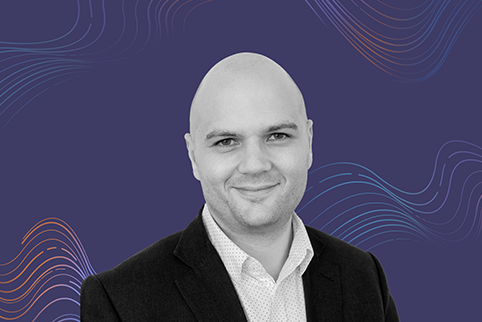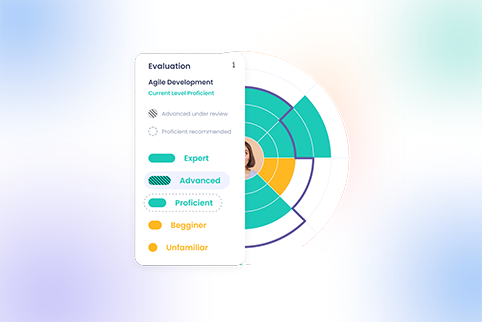Josh Bersin: Trends & Predictions That Will Revolutionize Work in 2024
9 min read

As we’re approaching the end of the first month of 2024, there are still many questions about the future of business, HR, and work in general. And while many (including us) have already created their own lists of HR predictions or trends for this year, who else would be better to give us a glimpse into the future other than Josh Bersin?
As an industry analyst and thought leader, he has some eye-opening insights and advice for HR and business leaders — and it all starts with understanding the elements driving the most important trends of this year. According to Josh Bersin, 2024 will be a tipping point in the business world due to several factors:
- talent and skill shortages
- the need to redesign companies
- AI-driven transformation
- relentless search for productivity
Let’s look at how these factors impact various business areas and what he expects to happen in 2024.
Tough labor market
According to Josh Bersin, the combination of low unemployment and plummeting fertility rates in developed countries means the working population is shrinking. And he doesn’t expect things to improve in the near future, based on current demographic data. So, what does this mean for companies?
Well, hiring (especially top talent) will keep getting harder and organizations will be forced to allocate more of their time and resources to nurturing the right skills instead of recruiting them.
He also stresses the need to invest in high-retention models of work, which need to cater to the ever-growing needs and expectations of (modern) employees. This will involve aspects such as:
- improving pay equity
- fully embracing hybrid work models
- emphasizing and training human-centered or people-first leadership
- adopting dynamic career paths that open a wider range of growth opportunities for your people
Game-changing role of AI
Now, let’s look at “the biggest thing that happened in 2023”, as Josh Bersin puts it — AI. He is very optimistic about the transformative power of these cutting-edge solutions and believes they will change everything, from personal lives and jobs to careers and companies.
While he acknowledges that many C-level executives have already started discussions with HR on integrating AI in talent management practices, he argues that the biggest question is how to integrate it across the entire organization and the role of HR in defining new:
- roles and jobs
- required skills
- rewards
Josh Bersin’s belief in AI is so high that his company has launched Galileo, the world’s first AI-powered expert assistant for HR, which has already been available for some, enabling them to witness how fast and effective it is when it comes to extracting or summarizing information and data from many internal resources.
Few companies have a truly integrated data management system for all of their customer data match to their sales, data match to their revenue, data match to their marketing. Well, AI does this almost automatically.
— Josh Bersin

Rise of dynamic organizations
The rise of more integrated and dynamic organizations isn’t something that will happen from 2024 onward. Josh Bersin explains that it is already unfolding before our eyes.
Breaking down the functional hierarchies of jobs, careers, and organizations is simply a response to the challenges of the new world of work and an answer to important questions like how can we:
- remain productive and competitive?
- innovate faster than others?
- become and maintain the status of an attractive employer?
Josh Bersin also mentions that the traditional hierarchical approach is what often leads to situations like having multiple teams that do competing things or simply don’t collaborate or even communicate with each other — which slows companies down too much and stifles internal creativity.
While rigid career paths have been the model up until recently, the new dynamic model leaves it behind. Companies need to become flatter and enable cross-functional collaboration and cross-functional teams — facilitating and simplifying moves (vertical, lateral) between different internal jobs and departments.
Dynamic and integrated organizations also need to let go of the construct of management and labor, in which the former provides the strategic direction or the decision-making and the latter does the actual work. In this new model, innovation shouldn’t be expected only from R&D departments, as it has been for a long time, but encouraged in everyone.
Skills-first approaches
Josh Bersin points out that we’re witnessing a rapid evolution, in which industries are overlapping and many jobs are no longer limited to a particular industry. Everyone is going digital, everyone needs cloud-based solutions, and sooner or later everyone will implement AI.
In this new world, skills-first approaches — skills-based hiring, skills-based pay, skills-based careers, skills-based development — aren’t just HR fads, but powerful solutions to the shift toward dynamic organizations.
Systemic HR
As explained by Josh Bersin, HR also operates in silos, with recruitment often having different priorities from L&D and so on. This needs to change.
In fact, the new goal of HR in dynamic organizations is to work together with other stakeholders and address critical business problems, including growth, profitability, and productivity. He calls this systemic HR and it’s also often referred to as strategic HR.
HR teams themselves will need to become more adaptable and dynamic and focus on developing their own skills and leadership capabilities. The process will also involve modernizing HR tech, including L&D systems that will be among the first to leverage AI tools.
But that’s only one of the AI use cases in human resources. In this new strategic or systemic operating model, AI will also be used by HR to provide faster and more effective leadership and management support across the entire organization.
Productivity is why HR departments exist. Everything we do, from hiring to coaching to development to org design, is only successful if it helps the company grow.
— Josh Bersin

Productivity remains the name of the game
According to Josh Bersin, productivity will remain critical in 2024 because:
- CEOs care about it and are aware that at least some of the work within their companies is wasted or the ROI isn’t high enough.
- AI will drive it even further, with generative models being targeted specifically at improving white-collar productivity.
- It is one of the pillars of growth, especially when talent shortages don’t allow organizations to find top talent and hiring timelines can be long.
- It goes hand in hand with reinvention, helping to overcome inertia and inefficiency.
He goes on to explain that when you cannot grow by hiring, the only choice you have is to look at automation opportunities and focus on improving current productivity levels.
Career reinvention and development
This year, we will witness an enormous demand for career reinvention, development, and growth programs, as well as coaching and mentorship opportunities — especially among younger workforce members.
These opportunities need to be readily available and transparent across the entire organization — which means talent marketplace platforms will become increasingly popular and will yield results for both companies and workers.
When based on skills-first approaches, the reinvented jobs (broken down into skills and proficiency levels) will facilitate what we refer to as non-linear career paths. This is not only what workers want but also what they need.
Especially people like Gen Zers are much more aware that they will live a lot longer and more willing to go elsewhere when their growth needs and professional aspirations aren’t being supported.
This old idea that we’re going to grow the company by hiring, hiring, hiring is gone. It’s still a part of the growth part of the company, you’re always hiring to replace people, to bring new skills, et cetera, and to bring new perspectives. But in a dynamic organization, a lot of the growth comes from within. People grow too.
— Josh Bersin

Employee activation
In his own words “a new theme”, employee activation is all about listening to your employees and empowering their team leads and managers to make the best decisions related to work based on specific needs.
This activation also includes a new element — trust, which joins the previous top employee expectations or desires from a job: career advancement, personal empowerment, and social impact. People also expect more transparency and inspiration from their leaders:
“61% said that when considering a job, they expect the CEO to speak publicly about controversial issues they care about.” – Edelman study
Mental health struggles and new work styles
Josh Bersin highlights that every study on employee engagement reveals people are burned out, tired, and stressed. They feel that they’re overworked. The high levels of stress are also caused by:
- challenges associated with remote work
- inconsistencies of hybrid work
- younger generations see the hustle culture as less enticing
These have led to increased expectations from workers to feel that companies take better care of them and their overall well-being and start considering alternative work lifestyles, including the four-day work week, which, in Josh Bersin’s words:
“I think reduced work time is coming quicker than you realize. The overwhelming majority of the companies we spoke to were happy with the outcomes, citing numerous benefits and unexpected results, and have made the model permanent.”
Final thoughts
As you can see based on these predictions from Josh Bersin, HR teams will need to address many challenges in the coming years.
They will play a critical role in accelerating the shift toward dynamic organizations and jobs and will need to focus on new aspects, including employee activation and the selection and implementation of AI tools — all while redesigning jobs and processes based on skills-first approaches and rethinking performance management.
But these also represent opportunities to grow, expand, and let go of old models and approaches that fail to deliver and embrace new ones that will quickly change the business world forever.
To learn more about these predictions, check out Josh Bersin’s official article.







